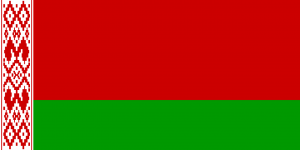Difference between revisions of "Language/Belarusian/Grammar/Adjectives"
m (Quick edit) |
m (Quick edit) |
||
| Line 55: | Line 55: | ||
<hr>If you have any questions, please ask them in the comments section below.<br>Please feel free to edit this wiki page if you think it can be improved. 😎 | <hr>If you have any questions, please ask them in the comments section below.<br>Please feel free to edit this wiki page if you think it can be improved. 😎 | ||
==Related Lessons== | |||
* [[Language/Belarusian/Grammar/Negation|Negation]] | |||
* [[Language/Belarusian/Grammar/Questions|Questions]] | |||
* [[Language/Belarusian/Grammar/Personal-Pronouns|Personal Pronouns]] | |||
* [[Language/Belarusian/Grammar/Prepositions|Prepositions]] | |||
* [[Language/Belarusian/Grammar/Adverbs|Adverbs]] | |||
* [[Language/Belarusian/Grammar/Conditional-Mood|Conditional Mood]] | |||
* [[Language/Belarusian/Grammar/Nouns|Nouns]] | |||
* [[Language/Belarusian/Grammar/Possessive-Pronouns|Possessive Pronouns]] | |||
* [[Language/Belarusian/Grammar/Future-Tense|Future Tense]] | |||
{{Belarusian-Page-Bottom}} | {{Belarusian-Page-Bottom}} | ||
Revision as of 23:07, 25 February 2023
Hi Belarusian learners! 😊
In today's lesson, we will be discussing adjectives in the Belarusian language. Adjectives are words that describe or modify nouns and pronouns. They can be used to express a variety of meanings, such as size, shape, color, age, origin, material, and purpose. In this lesson, we will look at how to form and use adjectives in Belarusian.
Formation of Adjectives
Adjectives in Belarusian are formed by adding suffixes to the root of the word. The suffixes depend on the gender, number, and case of the noun they are modifying.
Gender
In Belarusian, adjectives have three genders: masculine, feminine, and neuter. The gender of the adjective is determined by the gender of the noun it is modifying.
Number
Adjectives in Belarusian also have two numbers: singular and plural. The number of the adjective is determined by the number of the noun it is modifying.
Case
Adjectives in Belarusian also have six cases: nominative, genitive, dative, accusative, instrumental, and locative. The case of the adjective is determined by the case of the noun it is modifying.
Usage of Adjectives
Adjectives in Belarusian can be used to express a variety of meanings, such as size, shape, color, age, origin, material, and purpose.
Size
Adjectives can be used to express size. For example, the adjective вялікі (big) can be used to describe a large object, while the adjective маленькі (small) can be used to describe a small object.
Shape
Adjectives can also be used to express shape. For example, the adjective круглы (round) can be used to describe a round object, while the adjective правы (straight) can be used to describe a straight object.
Color
Adjectives can also be used to express color. For example, the adjective чырвоны (red) can be used to describe a red object, while the adjective зялёны (green) can be used to describe a green object.
Age
Adjectives can also be used to express age. For example, the adjective новы (new) can be used to describe a new object, while the adjective стары (old) can be used to describe an old object.
Origin
Adjectives can also be used to express origin. For example, the adjective беларускі (Belarusian) can be used to describe a Belarusian object, while the adjective рускі (Russian) can be used to describe a Russian object.
Material
Adjectives can also be used to express material. For example, the adjective драўлявы (wooden) can be used to describe a wooden object, while the adjective металічны (metal) can be used to describe a metal object.
Purpose
Adjectives can also be used to express purpose. For example, the adjective гульнявы (game) can be used to describe a game object, while the adjective працоўны (work) can be used to describe a work object.
If you have any questions, please ask them in the comments section below.
Please feel free to edit this wiki page if you think it can be improved. 😎
Related Lessons
- Negation
- Questions
- Personal Pronouns
- Prepositions
- Adverbs
- Conditional Mood
- Nouns
- Possessive Pronouns
- Future Tense
